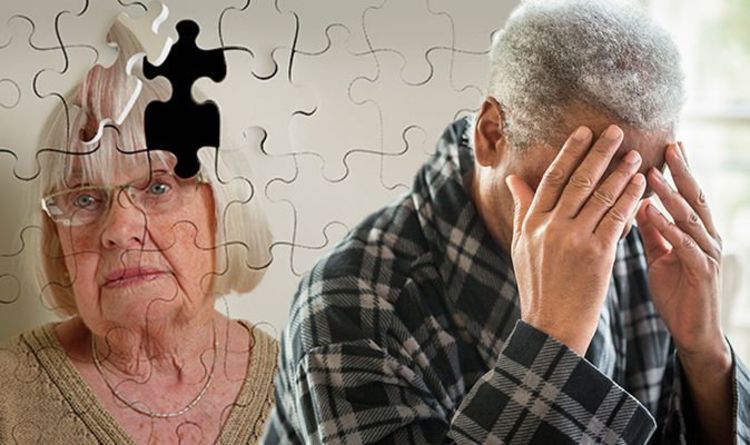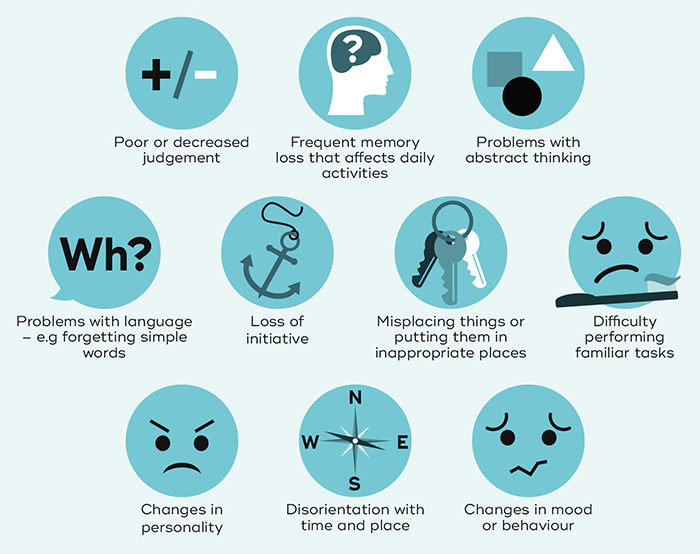108 Glen Osmond Road, Parkside

Dementia is a general term used to describe a decline in mental function that is severe enough to interfere with daily living. Dementia is not a specific disease. It is a group of symptoms that can affect thinking, memory, reasoning, personality, mood, and behavior.
Dementia develops when the parts of the brain that are involved with learning, memory, decision-making, and language are affected by various infections or diseases. The most common cause of dementia is Alzheimer's disease. However, there are numerous other known causes of dementia.
Causes of Dementia:-
Alzheimer’s disease – Alzheimer’s disease is considered the most common cause of dementia. It occurs in people aged 65 and older, although some already show signs at an earlier age due to genetics. Though the real cause of Alzheimer’s is unknown, brain scans of people with Alzheimer’s reveal that they often have plaques (clumps of protein called beta-amyloid) and tangles (fibrous masses of tau protein). Alzheimer’s is a progressive disease that occurs slowly, often over 8-10 years. Those afflicted with Alzheimer’s usually experience word-finding problems, getting lost, and forgetfulness.
Vascular dementia – this occurs from brain damage due to reduced or blocked flow in blood vessels. It is also called multi-infarct dementia because it can be caused by multiple small strokes. Dementia usually starts suddenly, and people with high blood pressure and who have suffered previous strokes or heart attacks are most at risk.
Lewy body dementia – a common form of irreversible dementia, its primary symptoms include visual hallucinations and “Parkinsonism” where the patient exhibits features of Parkinson’s disease like tremors and rigid muscles. People diagnosed with Lewy body dementia experience a sleep behavior disorder that involves acting out dreams.
Frontotemporal dementia – With this condition, the nerve cells in the frontal and temporal lobes of the brain degenerate, which results in inappropriate behavior, language problems, and difficulty with thinking, concentration, and movement.
Other causes of dementia include:
Symptoms of Dementia:-
Symptoms of dementia depend on the cause. However, the most obvious signs and symptoms include:-
* Depression
Ayurveda considers Dementia as a Vata disorder (mainly prana vata) aggravated disorder that causes irregular or abnormal movement or circulation in the body. This hampers the normal functioning of the cells and causes damage to cells in the brain, resulting in brain degeneration. The treatment approach for dementia in Ayurveda aims at rejuvenating the brain as well as the whole body, thereby improving brain functions. Therapeutic procedures like Vaman, Virechana, Nasya, and Vasti are used for complete detoxification of the body. Procedures like Shirodhara and Abhyanga are found to be very effective in rejuvenating the brain cells. Along with these procedures, the internal herbal medication made of herbs that have curative properties is administered.
Ayurvedic medicines (herbs) that are proven to be effective in the cure of Dementia are:-

1. Brahmi (Bacoppa monnieri): It is known to combat inflammation & oxidative stress in the brain, thus boosting the coordination abilities of the nervous system. It helps sharpen the brain, fight stress, and reduce depression. It contains natural bacosides plant alkaloid that slows down the progress of the disease and works as a tranquilizer, anti-anxiety, anti-depressant, and brain function enhancer.
2. Licorice (Glycyrrhiza glabra): It improves cognitive power and memory, and reduces aging effects on the brain due to the presence of salicylic acid, a chemical associated with the prevention of degeneration of neurons.
3. Turmeric (Curcuma longa): It is considered to be one of the best medicines for improving memory and concentration. Antioxidants, curcumin, and curcuminoids present in Turmeric fight the effects of free radicals, reduce plaque formation, lower inflammation of nerves, improve sleep quality, reduce anxiety, and act as a stress buster.
4. Ashwagandha (Withania somnifera): It is known for providing overall nourishment, rejuvenation, and strength to the body and mind. It repairs and prevents brain cells from damage, thereby preventing dementia from aggravating and quite effectively reversing damage leading to dementia. It also increases blood flow to the brain, reduces plaque buildup in the brain, boosts the cognitive capacity of the brain, enhances the person’s ability to cope with anxiety, and elevates their mood.
5. Ginkgo Biloba: It is an ancient herb that is known to have a powerful antioxidant property that prevents the development of dementia. It boosts blood circulation in the brain and improves memory.
6. Shankhapushpi (Convolvulus pluricaulis): It acts as a brain tonic and relieves mental stress and fatigue. It is also known to improve short-term memory.
7. Vacha(Acorus calamus): Vacha root is known for treating a number of neurological diseases and dementia. It enhances memory and improves speech coordination. It contains many alkaloids, flavonoids, mucilage, tannins, and steroids.
8. Tagar (Valeriana wallichii): It improves thinking capacity and reasoning, and improves concentration.
The appropriate combination of these herbs according to one’s Ayurvedic body type is recommended by Ayurvedic practitioners. For more detailed treatment options, please contact Life Line Ayurvedic Herbal Clinic. CONTACT

Disclaimer : Sandeep Kumar and Anupam Vasudeva are not GP, they have Ayurveda medical degree from India where it is considered equal to any other medical degree. This qualification is recognized in Australia by vetassess governing body as Complementary Health Therapists. Life Line Ayurvedic Herbal Clinic does not claim to cure a disease or terminal illness and does not create any unreasonable expectation of beneficial treatment. Ayurvedic medicines and treatments are generally considered to be safe but rarely may be associated with possible adverse reactions in individual cases. We recommend seeking urgent medical attention in the case of an adverse reaction. This website provides you with information. You must contact your Ayurvedic or another health professional before you apply them. Read More